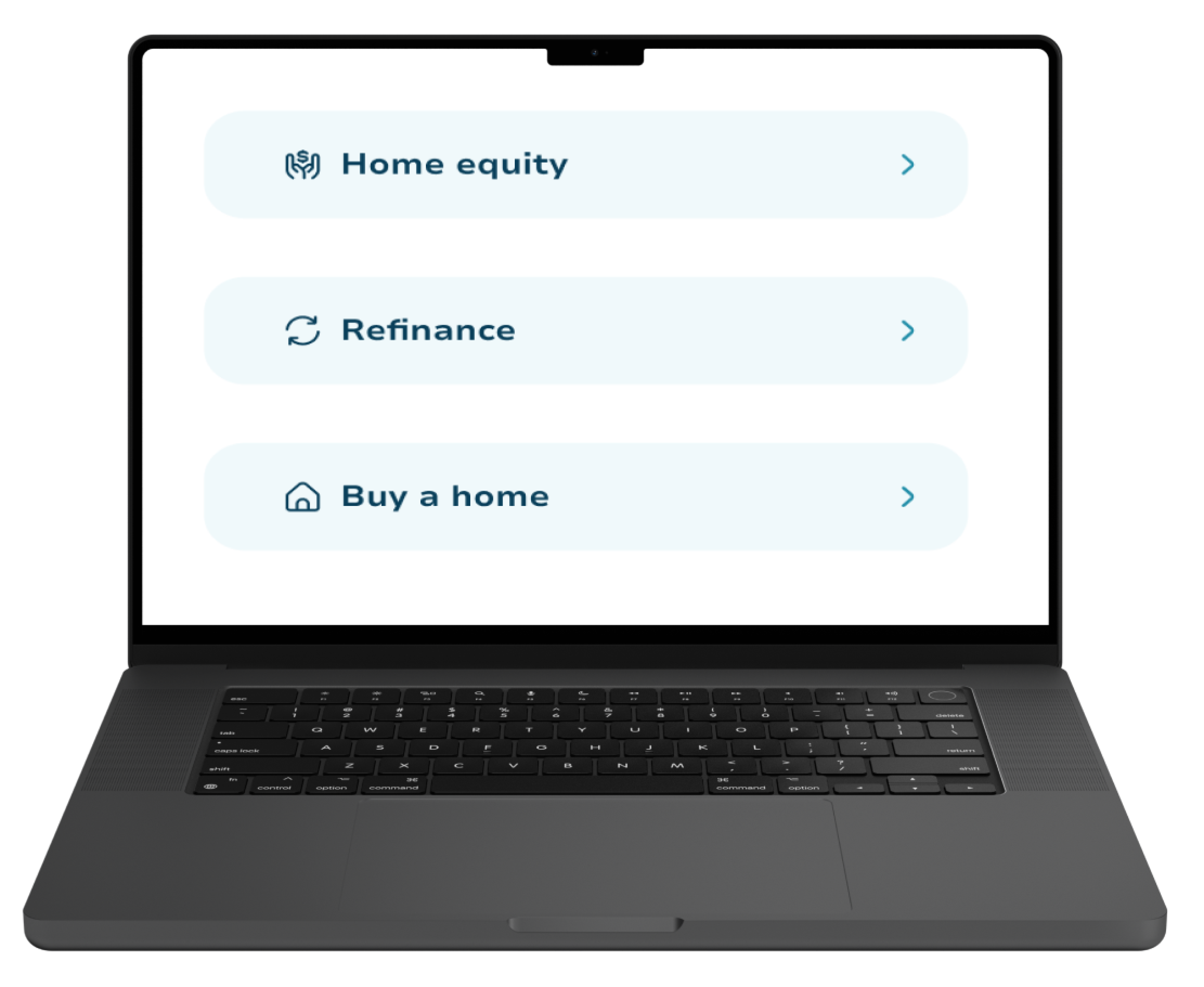Have you ever wondered whether a mortgage and a home loan are the same thing? You’re not alone. These two terms are often used in place of one another, but they don’t always mean the same thing. Knowing the difference can help you make smarter financial decisions when buying a home. In this guide, we’ll break down what each term really means, how they work, and what to consider before you apply for a loan.
Quick Summary
A mortgage is a loan that helps the borrower purchase a home. They allow the borrower to make payments on their home over a period of time.
Popular loans include: FHA, VHA, and conventional. Depending on your situation, certain loans will be more beneficial than others.
Key requirements: Get preapproved for a loan, choose the best loan for you, determine the amount you are able to put down, and finalize the deal.
Tips: Seek professional advice to determine the best loan for your financial situation and get preapproved as soon as possible.
What is a Mortgage?
A mortgage is a loan from a lender that gives the borrower the funds needed to buy or refinance a home. The borrower agrees to pay the lender back with mortgage payments; including interest, principal, and any other applicable fees.
To obtain a mortgage, the loans are insured by collateral, which is typically the home. If the borrower cannot pay their loan, the mortgage loan agreement gives the lender the right to take ownership of the home.
Our talented agents at MyMortgageMarketplace are here to help you with any questions you may have. Call today or click here to use our free mortgage calculator to calculate your monthly payment.

How Does A Home Loan Work?
When you agree to a mortgage, the lender will provide a specific amount to buy a home. The borrower and the lender will also agree to pay back the home loan with interest over several years. The lender retains the rights to the home until the mortgage. The lender can repossess the home if payments are not made or the borrower violates the loan terms.
Is A Mortgage The Same Thing As A Home Loan?
“Home loan” and “mortgage” are used interchangeably, and while they are similar, they have slightly different meanings. A mortgage is a loan used to buy a residence , and the home is the collateral for the loan. A home loan is a type of mortgage that is used to buy a home.
Who Is The Mortgage or Home Loan Lender?
A mortgage or home loan lender may be a bank, but it could also be an online mortgage lender. The lender will assess your credit history, finances, credit score, income, debt, and assets to ensure that you can make payments.
Not sure which loan fits your budget? Run the numbers with our loan comparison calculator and make a confident choice. Give our talented agents a call at (833) 977-1560, Monday through Friday, 9 A.M. – 5 P.M. E.T.
Types of Mortgages
Conventional Loans
The most common mortgage type offered by most lenders is a conventional loan. It is also considered the best option for borrowers with strong credit who can contribute a down payment of at least 3%.
Conventional mortgage loans are not guaranteed or insured by government agencies, such as the Federal Housing Administration or the Department of Veterans Affairs. They typically meet the down payment and income standards of Fannie Mae and Freddie Mac, home mortgage companies from the U.S. Congress, created.
Fannie Mae buys mortgages from larger commercial banks and lenders. Freddie Mac buys mortgages from smaller banks and credit unions. They play a pivotal role in maintaining the mortgage market’s stability and affordability. By purchasing and guaranteeing mortgages from lenders, Fannie Mae and Freddie Mac can ensure that funds are always available for individuals wanting to buy a new home.
Federal Home Administration (FHA)
FHA loans are mortgage loans issued by the Federal Housing Administration, a government agency within the U.S. Department of Housing and Urban Development (HUD).
A FHA loan is a great option for anyone having difficulty getting a conventional loan, such as someone with a low credit score or a first-time homebuyer. In order to qualify for an FHA-insured loan, first-time home buyers and their homes must meet FHA eligibility standards, including:
- Home buyers must make a down payment of at least 3.5 percent
- Income of home buyers must be verifiable
- Home buyers must not fault on federal taxes or student loans

Specialty Loan
A specialty loan is a loan that doesn’t fit the standard or FHA loan categories. They can also be best suited for those who don’t qualify for a traditional mortgage or individuals who have a unique circumstance that warrants a specialty loan. This may include borrowers with a non-traditional income, investors, or individuals buying luxury homes or multi-unit residences.
Types of Specialty Loans
Bridge Loan: A bridge loan is perfect for home buyers who have found their dream home, but have yet to sell their current residence. This loan helps fill the gaps and acts as short-term financing until the buyer’s current home is sold.
HELOC (Home Equity Line of Credit): A Home Equity Line of Credit (HELOC) is a type of revolving credit that allows homeowners to borrow against the equity in their homes. A HELOC loan is similar to a credit card in that you can borrow, repay your debt, and then borrow again.
Home Equity Conversion Mortgage (HECM): A Home Equity Conversion Mortgage (HECM) is available to homeowners aged 62 and over. This type of reverse mortgage allows homeowners to convert part of the equity in their homes into cash, providing additional financial security for homeowners.
Whether you’re buying, refinancing, or comparing loans, our mortgage calculators help you plan with clarity and confidence. Use our calculators to find out how much house you can actually afford before you start browsing.

What’s Included In A Mortgage or Home Loan Payment?
Principal:
A principal is the amount you borrow and repay to your lender.
Interest:
Interest is the main cost you pay to the lender for borrowing money to purchase the home.
Mortgage Insurance:
Mortgage insurance protects the lender if you default on the loan.
Property Taxes and Homeowners Insurance:
Lenders often roll your property tax payments and homeowners insurance into your mortgage payment.
How To Get A Home Loan or Mortgage
To obtain a mortgage or home loan, the individual seeking the loan must submit an application detailing their financial history to a lender. The application must be completed to demonstrate that the borrower can repay the loan.
When you apply for preapproval, lenders will check your income, assets, and credit history. Once they determine how much they can lend you, they must provide an interest rate. Getting pre-approved for a mortgage allows you to know the exact amount of money you will receive and can assist you in finding properties within your price range.
Preapproval is a more in-depth process than prequalification. Prequalification is less accurate than preapproval because they do not allow the lender to assess your assets. Prequalification can help give you a ballpark number on how much money you need, whereas pre-approval gives you the exact number.

What Is A Mortgage For A House?
A home mortgage is a loan used to purchase a home or borrow money against the value of your current residence. In accepting a mortgage from a lender, the borrower must also accept the terms. Lenders will need collateral to issue the loan to ensure that payments will be met.
The lender will place a lien on the property allowing them the right to seize the property if the borrower defaults on the loan. When the lender seizes the property this begins the process of foreclosure.
What Credit Score Do You Need To Buy A House
In short, the credit score needed to buy a house depends on the type of loan you are interested in. Every mortgage or home loan payment contains several parts, each playing a role in the total amount you pay each month. The principal is the amount you borrowed and are gradually paying back over time. Interest is what the lender charges for loaning you that money; it’s calculated as a percentage of your loan balance and can significantly impact the cost of your mortgage.
Conventional Loan:
Most mortgages are conventional loans and according to CNBC, a credit score of 620 or better is typically required for a conventional loan. You can qualify for the best interest rates with a credit score of 760 or higher.
FHA Loans:
FHA loans are insured by the Federal Housing Administration and a credit score of 500 and a 10% down payment is required to qualify. If you have a credit score of 580 or higher, you will only be required to put down 3.5%.
VA Loans:
VA loans are insured by the U.S. Department of Veteran Affairs. Active and former service members can apply, and there is no specific credit score requirement. However, lenders will typically want at least a score of 620.
Not sure which loan is right for you? Use our Loan Comparison Calculator to see how different mortgage types stack up based on your financial situation.
Final Thoughts
Taking out a home loan or mortgage can be stressful and confusing, but choosing the right loan can help keep costs down and will provide you with the amount you need for your dream home. Understanding the differences between the various loans and how to apply for a loan will help make the process easier.
Our expert agents at MyMortgageMarketplace are here to help you find the mortgage that best suits your needs. Contact us today for more information on mortgages and home loans or to receive assistance in finding a plan.
Have questions about which type of mortgage or home loan is best for you? Give our expert agents a call today and we can help you find a plan that works for you and your family. Monday through Friday, 9 A.M. – 5 P.M. E.T.

I appreciate the breakdown of closing costs—it’s something I hadn’t considered before. Great read!

Sammy P
Queens, NY

5/5

Great article! I didn’t realize how important it is to budget for maintenance and closing costs. Very helpful!

Jeremy M
Georiga, MD

5/5

This was super insightful! The tips on saving for a down payment cleared up a lot of confusion for me.

Tania N
Towns, CA

5/5


FAQ
How To Get A Mortgage?
+To get a mortgage you must secure pre-approval from a mortgage lender. This process will require you to submit documents regarding your assets, credit history, and income. This information will determine how much a lender will give you to purchase the home.
What Is A Mortgage?
+A mortgage is a loan from a lender to help the borrower purchase property. The home is used as collateral if the borrower defaults on the loan. This allows the lender to foreclose your home and sell it.
What Is A Reverse Mortgage?
+A reverse mortgage is a loan allowing homeowners to receive money from their home equity, rather than continuing to make payments each month. This differs from a traditional mortgage where the borrower makes payments to the lender.
Why Choose My Mortgage Marketplace?

Simplified Process
Effortless Application, Expert Support
From pre-approval to closing, our streamlined process and experienced team make home financing stress-free.

Tailored Solutions
Personalized Plans for Your Needs
Whether it's refinancing, home equity, or a new mortgage, we customize solutions to fit your financial goals.

Transparent Experience
Clear Rates, No Surprises
We provide competitive rates and full transparency, so you know exactly what to expect at every step.
